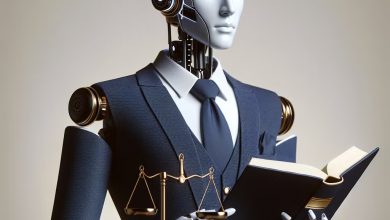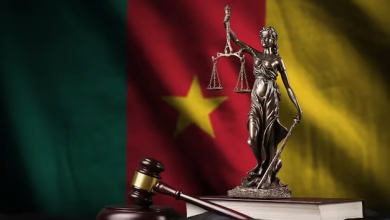THE ROBED COMPROMISE: Can Africa’s Judges Truly Stand Above Corruption?
By Bryan Miller

In the quiet chambers of Africa’s courthouses, where justice is supposed to stand blind, a storm has been brewing for decades. Cloaked in regalia, judges are often portrayed as the last line of defense in democratic societies — the interpreters of law, guardians of rights, and impartial referees in the courtroom. But what happens when the very institution meant to deliver justice is shackled by political strings, veiled threats, and, more insidiously, corruption?
This isn’t just an African problem — it’s a global one. Yet in Africa, where weak institutions often collide with strongman politics and resource-hungry elites, judicial independence is not just under threat — in some places, it is gasping for breath.
A Fragile Foundation: The Historical Roots
The erosion of judicial independence in Africa can be traced back to colonial rule, where legal systems were often instruments of suppression rather than justice. Colonial governors handpicked judges to uphold imperial interests, not the rights of indigenous peoples. Post-independence, many African leaders inherited not only the court buildings and legal codes but also the deeply political nature of judicial control.
In countries like Ghana, Nigeria, and Uganda, the early decades of independence were marked by authoritarianism dressed in civilian garb. Courts were often either sidelined or weaponized against political opponents. In 1964, Ghana’s first president, Kwame Nkrumah, dismissed superior court judges who ruled against his Preventive Detention Act. It was one of the first open acts of judicial interference in post-colonial Africa — and it set the tone.
Modern-Day Realities: Case Studies in Controversy
Fast-forward to today, and the picture isn’t much brighter. While many African countries boast of constitutional provisions guaranteeing judicial independence, the reality is far murkier.
Kenya: Braving the Winds of Power
Kenya offers a paradoxical study. The 2010 Constitution created one of the most progressive legal frameworks in Africa, establishing the Judicial Service Commission (JSC) to insulate judicial appointments from executive manipulation. But that hasn’t stopped interference.
In 2021, former President Uhuru Kenyatta famously refused to swear in six judges recommended by the JSC, citing “integrity concerns” — a move widely condemned as executive overreach. Even more alarming, Justice David Maraga, the Chief Justice who famously nullified Kenya’s 2017 presidential election, faced open hostility, budget cuts, and threats — a stark warning to others: Cross the powerful, and there will be consequences.
Nigeria: The Case of Onnoghen
In 2019, Nigeria shocked the legal world when Chief Justice Walter Onnoghen was suspended — just weeks before a critical presidential election. Officially, the suspension was over undeclared bank accounts. But critics, including international observers, saw it as a thinly veiled power play by the executive, designed to tip the balance of electoral justice in favor of the ruling party.
The implications were chilling. If the country’s highest judge could be brought down with such ease, what hope remained for lower court judges, many of whom already face underpayment and immense pressure?
DON’T MISS THIS: The Making of a Judge: How Africa’s Top Judges Were Molded
South Africa: A Rare Beacon?
South Africa has fared better than most. Its Constitutional Court is often hailed as one of the most independent in Africa. The judiciary’s firm handling of former President Jacob Zuma’s contempt case in 2021 — which saw Zuma jailed — sent a strong message. But even here, concerns linger. Accusations of politicization, factionalism within the Judicial Service Commission, and subtle pressure from political elites continue to test the limits of this independence.
Uganda: The Shadow of Museveni
In Uganda, under President Yoweri Museveni’s decades-long rule, the judiciary has often walked a tightrope. Though some judges have shown remarkable courage — such as in the 2006 ruling that deemed the security siege on the High Court as illegal — many others have faced intimidation. Political cases, especially involving opposition figures like Bobi Wine, are often seen as predetermined, with courts perceived as extensions of the ruling party’s power.
The Human Cost: Judges as Victims and Pawns
Corruption in the judiciary doesn’t always look like a bribe in an envelope. It manifests in subtler ways — delayed promotions, withheld resources, coerced resignations, orchestrated public smear campaigns, and isolation. For many judges in Africa, maintaining integrity comes at a high personal cost.
A retired judge in West Africa, speaking on condition of anonymity, confessed: “The greatest battle I fought was not legal, but moral — choosing between ruling fairly and protecting my family.” In countries where judges are denied security, paid poorly, or transferred without warning, many simply choose silence or complicity over sacrifice.
The Bigger Picture: Politics, Poverty, and Power
Why does this persist? The answer lies in Africa’s broader political culture. In many nations, power is personalized, not institutionalized. Presidents wield vast unchecked authority, and opposition is often criminalized. In such environments, the judiciary becomes a battleground.
Moreover, underfunding of judicial systems makes them vulnerable to bribery. In Cameroon, for instance, magistrates have gone months without pay — creating fertile ground for corruption. In parts of DR Congo and Central African Republic, courtrooms barely function, and “justice” is a commodity sold to the highest bidder.
Is There Hope?
Yes — but it will require deliberate change.
Civil society groups across Africa are increasingly calling for reforms. Legal associations, like the Pan African Lawyers Union (PALU), have been instrumental in pushing for judicial accountability and regional solidarity. Tech-based transparency tools, whistleblower platforms, and independent media also offer new hope.
Countries like Botswana, Mauritius, and Namibia demonstrate that with the right political will and legal structures, judicial independence is possible. In Rwanda, controversial as its leadership may be, judicial salaries and training have improved significantly, limiting incentive for petty bribery.
The Way Forward
-
Judicial Appointments Reform: Judges must be selected through transparent, merit-based processes shielded from executive interference.
-
Protection & Welfare of Judges: Fair remuneration, security, and professional development must be prioritized to minimize external influence.
-
Strengthened Civil Society Oversight: Public watchdogs, including bar associations, media, and NGOs, must be empowered to monitor judicial integrity.
-
Continental Cooperation: Africa needs stronger regional mechanisms, such as a revitalized African Court on Human and Peoples’ Rights, to hold states accountable.
Final Thought : The Scales Must Tilt Again
Africa’s judges do not wear crowns, but robes. Their power lies not in command, but in conscience. When that conscience is threatened by corruption, the soul of justice is at stake.
The battle to maintain judicial independence in Africa is far from over. It is a fight not just for the sanctity of the courts, but for the very idea of democracy. For if the final word in disputes is no longer the law, but money or might, then what justice is left for the ordinary African?
And so, in courtrooms across the continent, a silent prayer lingers — not just for judgment, but for courage.




